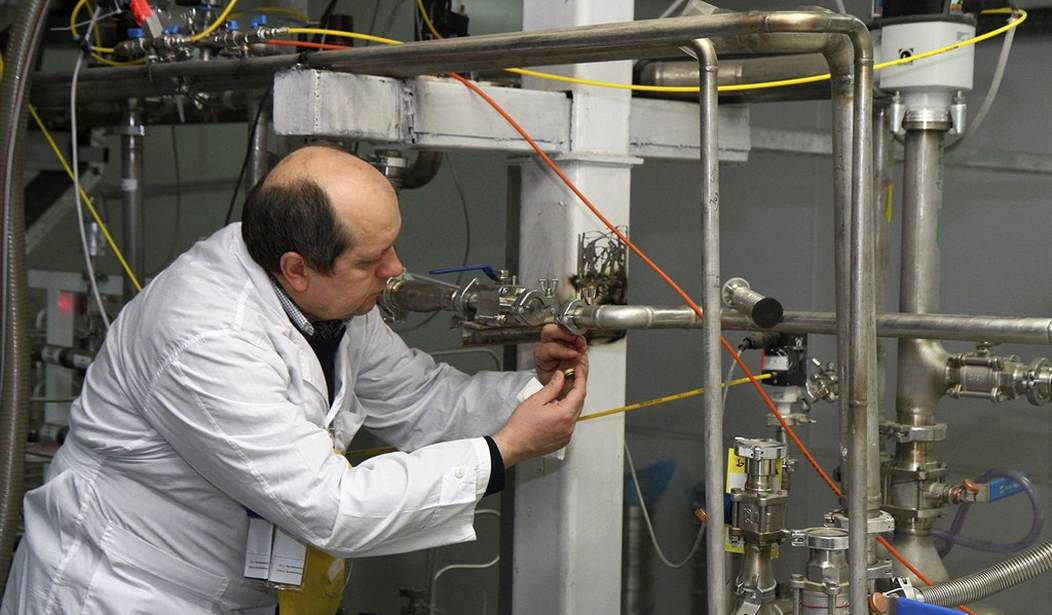All right, it might not be that much of a mystery. The latest in a series of attacks on Iran’s nuclear-weapons development infrastructure has put their central enrichment site off-line for months. Iran accused Israel of sabotage, and … likely everyone else thinks Israel did it too:
A power failure that appeared to have been caused by a deliberately planned explosion struck Iran’s Natanz uranium enrichment site on Sunday, in what Iranian officials called an act of sabotage that they suggested had been carried out by Israel.
The blackout injected new uncertainty into diplomatic efforts that began last week to salvage the 2015 nuclear deal repudiated by the Trump administration.
Iran did not say precisely what had caused the blackout at the heavily fortified site, which has been a target of previous sabotage, and Israel publicly declined to confirm or deny any responsibility. But American and Israeli intelligence officials said there had been an Israeli role.
Two intelligence officials briefed on the damage said it had been caused by a large explosion that completely destroyed the independent — and heavily protected — internal power system that supplies the underground centrifuges that enrich uranium.
Last year, the Iranians suffered a series of unexplained incidents in their nuke program, mainly around Natanz. The theory of these attacks at that time is that Israel had begun to worry about a potential Biden presidency and Joe Biden’s declaration that he would re-enter the Iran deal. In order to pre-empt Iran’s rapid advance to a nuclear weapon, Israel had stepped up its attacks on the program in an attempt to achieve by sabotage what would no longer be possible through US-backed sanctions on the regime.
That still fits, which is why Iran has openly accused Israel of being behind the attacks. They’re also threatening revenge:
Iran blamed Israel on Monday for a sabotage attack on its underground Natanz nuclear facility that damaged its centrifuges, an assault that imperils ongoing talks over Tehran’s tattered nuclear deal and brings a shadow war between the two countries into the light.
Israel has not claimed responsibility for the attack. It rarely does for operations carried out by its secret military units or its Mossad intelligence agency. However, Israeli media widely reported that the country had orchestrated a devastating cyberattack that caused a blackout at the nuclear facility.
While nature of the attack and the extent of the damage at Natanz remains unclear, a former Iranian official said the attack set off a fire while a spokesman mentioned a “possible minor explosion.”
The attack further strains relations between the U.S., which under President Joe Biden is now negotiating in Vienna to re-enter the nuclear accord, and Israel, whose Prime Minister Benjamin Netanyahu has vowed to stop the deal at all costs.
Even without the “blackout,” Natanz would — or should — have complicated Biden’s plan to re-enter the JCPOA. It has been clear for decades that the Iranians want nuclear weapons, not nuclear power, and that Natanz is at the center of that push. Iran had announced with much internal fanfare the expansion of more efficient centrifuges in Natanz, which is apparently what set off the decision to attack the site. This escalation towards weapons-grade uranium production is the complication in the talks about re-entering the deal.
On the other hand, it does give Biden a bit of leverage, if he’s cynical enough to deploy it. The only country that could possibly restrain the Israelis from further attacks on their nuclear infrastructure is the US. That may be arguable as long as Biden’s going soft on Iran, but the Iranians clearly have had little success in stopping Israeli penetration on their own. They got a reprieve from these sabotage missions in the run-up to the 2015 deal because Barack Obama and his administration put a lot of pressure on Israel, but otherwise the Israelis have had near-impunity to damage their infrastructure, and to do it strategically.
Biden could use that to get significant concessions from the Iranians the second time around. Critics of the JCPOA pointed out that the Iranians routinely blocked inspectors’ access to known nuclear-development sites, and that the original agreement did nothing about Iran’s missile programs and proxy armies in the region. If Biden could tie those issues into a new agreement with Iran, it might go a long way toward gaining more support here in the US. Having Israel attack their nuclear-weapons development systems in the meantime makes the situation more urgent for the mullahs, who are looking incompetent in the face of Israeli sabotage.
However, it seems unlikely that Biden will use that kind of leverage. He wants to get back in bed with Iran, and so do his European partners in the negotiation, and Iran knows it. They’re playing the West rather than the other way around. Biden has to deliver on his campaign pledges in order to look competent, especially to avoid comparisons between the outcomes of his policies and those of Donald Trump. The mullahs have the IRGC to keep people in line. That’s one reason why these negotiations are not usually very fruitful, and why the Israelis are doing what they can to derail Iran’s nukes before they come to fruition — and appear over the skies of Tel Aviv.
If it’s the Israelis who are behind this. But come on, man …








